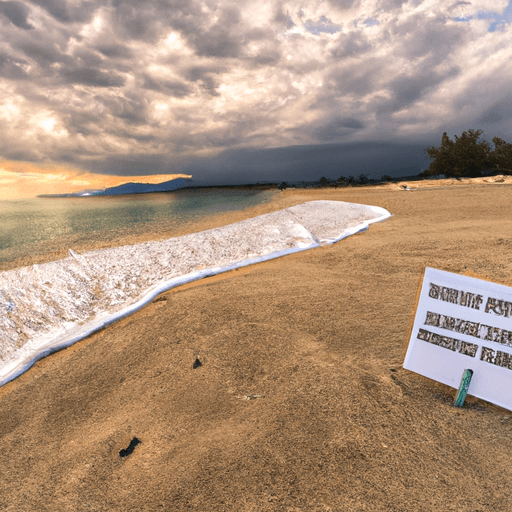Exploring the Impact of Climate Change on the Tourism Industry
The tourism industry is an important sector of the global economy, but unfortunately it is also one of the most vulnerable to the effects of climate change. Rising sea levels, extreme weather events, and changes to existing tourist destinations are all having a significant impact on the industry.
Extreme Weather Events
Extreme weather events, such as floods, hurricanes, and droughts, are becoming more frequent and more intense due to climate change. These events can have a major impact on the tourism industry, as they can cause disruption to travel plans, damage infrastructure, and even put people’s safety at risk. For example, in 2017, Hurricane Irma caused significant damage to Caribbean islands, resulting in a massive decline in tourism to the region.
Rising Sea Levels
Rising sea levels are another consequence of climate change that is having a significant impact on the tourism industry. Sea level rise affects coastal areas, which are often popular tourist destinations due to their beautiful beaches and other attractions. As sea levels rise, these areas are becoming increasingly vulnerable to flooding, erosion, and other natural disasters. This can lead to significant damage to infrastructure and other tourist attractions, resulting in a decrease in tourism to the area.
Changes to Existing Tourist Destinations
Climate change is also having an impact on existing tourist destinations, as extreme weather events, rising sea levels, and other changes can drastically alter the landscape. For example, in the Arctic, melting sea ice is making it easier for tourists to access previously inaccessible areas, while also having a negative impact on the local wildlife and environment. In other areas, changes in temperature and precipitation patterns can lead to the loss of natural attractions, such as coral reefs, glaciers, and snow-capped mountains.
Strategies to Mitigate the Effects of Climate Change
The tourism industry is taking steps to mitigate the effects of climate change on its industry. For example, many tourism businesses are taking steps to reduce their carbon footprint, such as using renewable energy sources and investing in energy-efficient technologies. Additionally, some businesses are investing in climate-resilient infrastructure, such as storm-proof buildings and flood-resistant roads, in order to better withstand extreme weather events.
What the Future May Hold
The future of the tourism industry is uncertain, as the effects of climate change are likely to become more severe in the years to come. In order to ensure the sustainability of the industry, it is important for businesses to continue to invest in strategies to mitigate the effects of climate change, while also looking for new ways to adapt to a changing environment.

















Comments
Leave a Comment